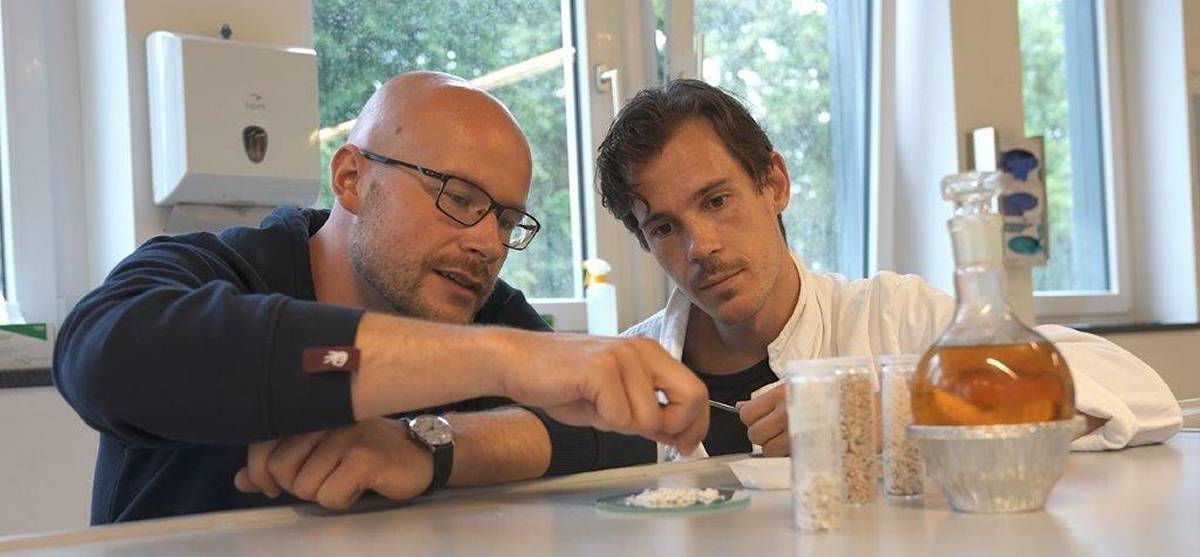Sparkasse Krefeld supports start-up companies
:
Eeden wins cotton from old textiles
–
With their start-up, Steffen Gerlach and Reiner Mantsch, the founders of Eeden, have developed an innovative process for the sustainable and environmentally friendly recycling of clothing.
Photo: Eeden
–
–
Krefeld The savings bank investment company S-UBG, in which Sparkasse Krefeld has held a stake of around 14 percent for 20 years, supports the start-up company.
The recycling of clothing fits into the tradition of the textile location Krefeld. The investment by the savings bank investment company S-UBG, in which Sparkasse Krefeld has held a stake of around 14 percent for 20 years, also has a nostalgically sentimental note. With its TechVision Fund I, S-UBG is investing in Eeden GmbH together with High-Tech Gründerfonds and another investor. S-UBG did not provide any information about the extent of the stake. The startup from Mönchengladbach has developed an innovative process for the sustainable and environmentally friendly recycling of clothing and other textile products.
–
With the financing, Eeden is planning further expansion in the area of research and development as well as the establishment of initial production capacities. “With its process, Eeden is addressing the major problem of the lack of cotton in the clothing industry,” says Bernhard Kugel, Managing Director of the TechVision Fund I management company. At the same time, the demand for cotton is increasing rapidly due to the growing world population and trends such as fast fashion. Eeden’s technology counters these developments by enabling resource-saving and environmentally friendly textile recycling.”
–
With the Eeden process, old textiles made of cotton or other cellulosic fibers can be converted into pulp, which serves as a resource for new fibers such as viscose or lyocell. This process is called upcycling: a high-quality product is created from an inferior starting material, an S-UBG spokesman informed. “Currently, old clothes that cannot be used as second-hand goods often end up abroad, where they are often improperly dumped in nature or burned. Basically, recycling only takes place by down-cycling textiles into inferior products such as cleaning rags or insulating material. We want to keep the material in a cycle and thus serve the growing demand for high-quality cellulose products,” explained Steffen Gerlach and Reiner Mantsch, the founders of Eeden.
–
Compared to other upcycling processes, Eeden’s technology is more environmentally friendly and at the same time more cost-efficient. It manages with a significantly reduced use of chemicals and reduces by-products such as salt loads in the manufacturing process. Since the process also tolerates a higher proportion of foreign fibers compared to the competition, textiles with higher admixtures of polyester fibers, for example, are also recyclable in the future, according to the spokesman.
–
The market potential for the start-up is high: With well over 20 million tons per year, the clothing and fashion industry, Eeden’s core market, accounts for around 60 percent of the total demand for cotton and cellulose fibers. “The demand for recycled fibers is already significantly higher than the corresponding supply. Constantly growing textile production, new legislation and trends in regional sourcing and sustainability ensure that the demand for Eeden products will continue to rise in the future,” said Björn Lang from TechVision fund management.
–
–

